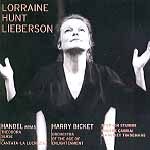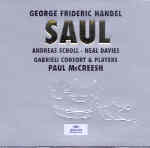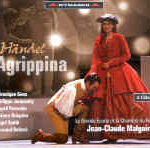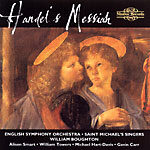

While this isn’t exactly a “new” release, it’s worthy of mention just in case you may have missed these performances by mezzo-soprano Stephanie Houtzeel. Her

Some years from now, observers of vocal music trends likely will look back on the early 21st century as the age of the mezzo and

Handel was dead, and apparently the public couldn’t get enough of his music, so his assistant John Christopher Smith (“the younger”) obliged his fans by

This beautiful, moving oratorio has been lucky on discs. Currently available are John Eliot Gardiner’s superb account on Philips and a performance on Naxos led

This, one of Handel’s most approachable, delightful, and least-confusing operas, dating from 1709–his “Italian” period–has been well recorded in performances led by John Eliot Gardiner

Why? With so many fine-to-great Messiah’s already available, who stands to benefit from this lackluster, hardly serviceable offering? William Boughton’s conducting is pedestrian at best–the

Semele was first presented in London in 1744; it was billed as an oratorio for murky reasons, but indeed it is operatic. I believe that

This opera, Handel’s penultimate, is relatively direct, both in its scoring–just strings and oboes–and its plot: Rosmene (soprano) must choose between Tirinto (mezzo-soprano), whom she

Janet Baker’s Scarlatti/Monteverdi recital is rarely cited as one of the gems of her discography, but it deserves that accolade. Perhaps its relative neglect is

La Resurrezione, dating from 1708 while Handel was in Italy, was a rarity until relatively recently. Seemingly on the heels of one-another came four recorded
![]()
